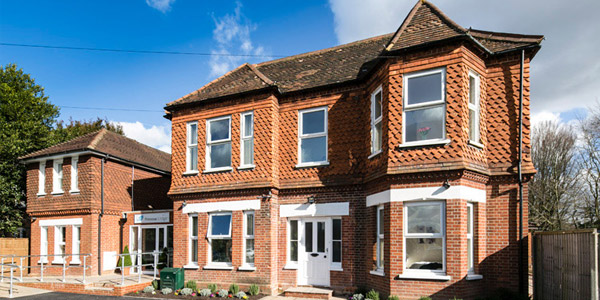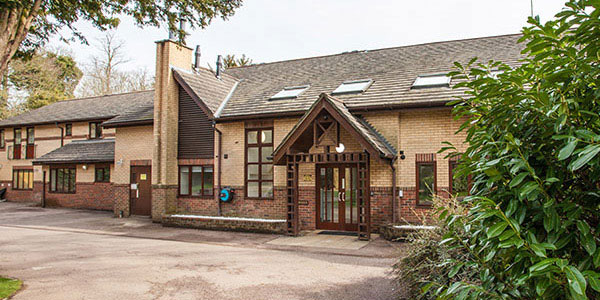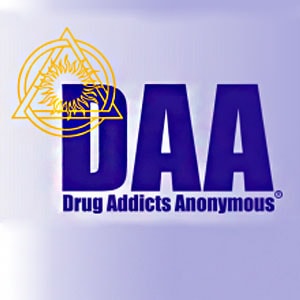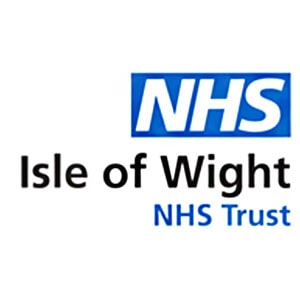Newport, like the rest of the UK, is in the grip of an increasingly serious addiction epidemic. Old scourges such as alcohol, heroin and cocaine have been joined by newcomers like spice and an array of legal prescription drugs to bring individual tragedy and collective social woe to the streets of Newport and the costs – human, financial, environmental, ethical and more – continue to mount, day by day and year on year.
Nevertheless, this bleak picture is not unremittingly so: hope is out there in the form of growing expertise and increasingly capable facilities in the field of addiction treatment. If you or a loved one are struggling with addiction in or near Newport, and are ready to seek help, read on to find out how you can find that help in rehab – and how it could save your life.
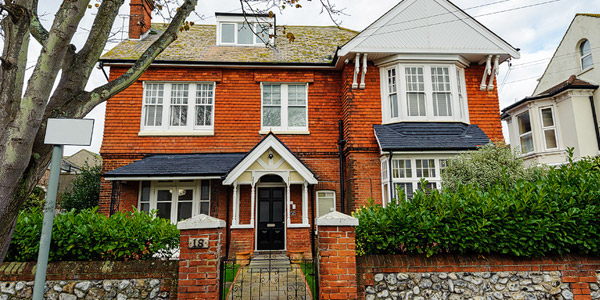
The Recovery lighthouse is a 13 bedroom alcohol and drug rehab facility set…
- Private
- Holistic Treatment
- 24/7 nursing
- Residential
UKAT Rehabs
At Primrose Lodge we genuinely care that our patients make a full recovery …
Banbury Lodge is a private UKAT rehab facility based in Banbury, Oxfordshir…
Liberty House Clinic is a fully furbished detox and rehabilitation facility…
-
Castlehold Baptist Church, 81 High Street, Newport, Isle of Wight,PO30 1NT0 review
- 12 Step
- Group Setting
- Free
- Outpatient
-
- 12 Step
- Group Setting
- Free
- Outpatient
-
102 Carisbrooke Road, Buccleuch House, Isle of Wight, Newport, PO30 1DB0 review
- 12 Step
- Group Setting
- Free
- Outpatient
-
- 12 Step
- Group Setting
- Free
- Outpatient
- Load More
Drug & Alcohol Rehab Services in Isle Of Wight
- A
- B
- C
- D
- E
- F
- G
- H
- I
- J
- K
- L
- M
- N
- O
- P
- Q
- R
- S
- T
- U
- V
- W
- X
- Y
- Z
What Is Rehab?

Rehab – more properly, “residential rehabilitation” – describes both the treatment of addiction on-site at a dedicated facility, as well as the facility itself. Rehab is typically set in spacious, tranquil surroundings ideal for allowing addicts to focus wholly on their recovery, confident in the confidentiality of the facility (crucial for anyone concerned about the prospect of their condition becoming known beyond the facility’s walls), and addresses both the immediate pressures of physical dependency and the longer-term challenges posed by psychological addiction.
As a result of this bilateral approach to treatment rehab is often considered to be the most effective means of treating addiction, in terms of its ability to provide a solid platform upon which a patient can build a lifelong recovery. Indeed so successful has the model become that in the public’s mind “rehab” has now become synonymous with the treatment of addiction.
How Can I Get Someone into Rehab?
It is well known that an addict is only really ready for treatment once they are able to voice a desire for help. However, the longer someone remains addicted, the higher the likelihood that their illness will have permanently catastrophic – even fatal – consequences for themselves or others. As a result it is imperative to get them help as quickly as possible.
Although the NHS can and does provide excellent addiction treatment services, demand is very high – in Newport and on the Isle of Wight as a whole – and the waiting times for some of those services can be distressingly long. Therefore, if you or someone you know are ready to reach out to help, don’t waste any more time. Call 0800 024 1455 to speak with a professional today about some of the private options that may be open to you.
Advantages of Private Rehab
As mentioned above, rehab offers patients a peaceful, secure and confidential setting in which they are able to focus wholly upon their well-being and their ongoing recovery, away from the temptations of daily life and the environment in which their addiction developed (as well as, obviously, substances of abuse).
When going through the first phase of rehab – detox – patients will benefit from supervision by highly experienced medical personnel who are on hand to ensure that detox and withdrawal are safe and as comfortable as possible (this may involve the provision of certain medicines).
Moving into the second phase – therapy – patients work to reveal and address the root causes of addiction, and to develop psychological defences against relapse; they also benefit from being given bespoke dietary and fitness plans (working on the basis that a healthy mind requires a healthy body) and potentially from any fitness or other recreational facilities offered by the rehab in question.
Upon leaving rehab after completing the agreed treatment programme, the former patient – now more correctly referred to as a recovering addict – will be given up to a year’s free aftercare in recognition of the fact that recovery is not complete simply upon walking out of the facility but is an ongoing process requiring constant attention, diligence and dedication to leading a life free of substance abuse.
What Does Rehab Cost in Newport?
The cost of private rehab in or near Newport can vary significantly by treatment programme, and depending on which of a variety of optional extras are selected. As a rough guide, standard costs range from between £5,500 and £11,000 per month, though the cheapest rehab treatment can start from as little as £834 per week. For more details, call 0800 804 4755.
NHS Addiction Treatment Options near Newport
For various reasons – including concerns over cost or the difficulty of spending a significant period away from family and work commitments – some addicts may feel that private rehab is not currently an option for them. If this applies to you, you need not give up hope: there are numerous NHS and charity resources in and around Newport and across the Isle of Wight of which you can avail yourself. Speak to your GP about which resources may be suitable.
Advantages of NHS Treatment
The most obvious advantage of going by the NHS for addiction treatment is that it will be free at the point of use; as noted above, the potential cost of private rehab discourages some addicts from seeking treatment in that way (though it should be noted that compared with the costs of continuing with an addiction, this may be viewed as a minimal investment).
Another advantage the NHS offers is its geographic reach which makes facilities comparatively very accessible (though waiting times, again, can be distressingly excessive). Quality is also a factor though this varies from trust to trust.
Addiction Support Groups
A number of organisations exist across the country to provide assistance to recovering addicts, and some of these operate a support group model. Support groups are groups of individuals who are themselves recovering addicts – some only recently free from addiction, while others may have been clean for many years – and who come together at regular meetings to give and take mutual support: sharing their stories of addiction, giving advice on how to resist relapse, showing solidarity and sympathy when group members are struggling, and providing the simple companionship which can mean so much in times of difficulty and loneliness.
Support group attendees can come from all walks of life, brought together by their shared experience of addiction and recovery; typically, attendance at support groups is free and the only qualification for participation is a commitment to leading a life free of substance abuse.
The most famous support group organisation, and the one on which most others are modelled, is Alcoholics Anonymous (AA) which was founded in 1935 and runs on a 12-step programme of personal and spiritual development, with one of the steps being a recognition that a higher power – such as God – can assist with an alcoholic’s recovery. Narcotics Anonymous (NA), founded in 1953 and based directly upon the AA model, is the second-largest support group organisation worldwide and caters to recovering drug addicts specifically.
In a similar vein, but supporting those recovering from addictions to specific substances, are Cocaine Anonymous (CA), Heroin Anonymous (HA), Marijuana Anonymous (MA) and Crystal Meth Anonymous (CMA), all of which operate 12-step programmes. There are also support groups such as Al-Anon and Nar-Anon assisting the families and friends of addicts which typically hold meetings alongside those for the addicts themselves.
Support groups typically meet weekly, though each local chapter is managed independently and meeting times and venues are subject to change. To find information on meetings in or near Newport, see the relevant websites: Alcoholics Anonymous; Narcotics Anonymous; Cocaine Anonymous; Heroin Anonymous; Marijuana Anonymous; Crystal Meth Anonymous.
Types of Counselling

One option for recovering addicts – especially those with extremely busy schedules – is individual counselling provided by private counsellors operating along similar lines to “normal” psychotherapists. Such counsellors can be found across the country, providing a huge variety of different therapy models and approaches to treatment; they are usually seen by appointment on an ongoing – typically weekly – basis with fees charged accordingly.
This model is often very beneficial for recovering addicts who have already gone through a treatment programme such as that provided at a rehab who seek supplementary aids to their recovery; and conversely to those who have not yet gone to rehab but who are seeking to manage an addiction ahead of taking such a step.
How to get to Recovery Lighthouse from Newport
Recovery Lighthouse is an attractive, peaceful and spacious 13-bedroom alcohol and drug rehab facility situated in a quiet residential neighbourhood in Worthing, West Sussex. Its state-of-the-art facilities and highly experienced medical and support staff create the ideal environment in which to address the key questions at the heart of recovery from addiction, and to embrace its fully comprehensive holistic rehabilitation programme.
To get to Worthing from Newport, take the Fishbourne to Portsmouth ferry; on the mainland, take the B2154 to the A3 and then join the M275. Merge into the M27 and keep on that road as it becomes the A27. Go all the way along this road until the A2031, then take the A2032 and follow signs to the town centre.


